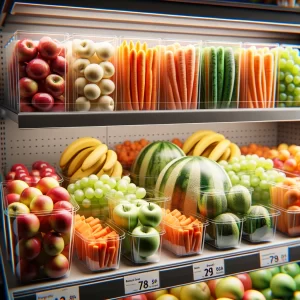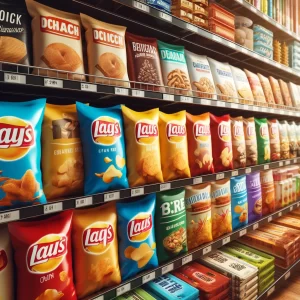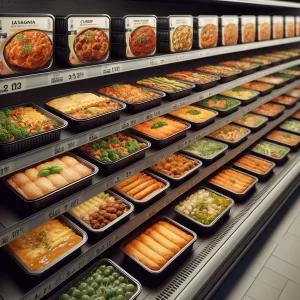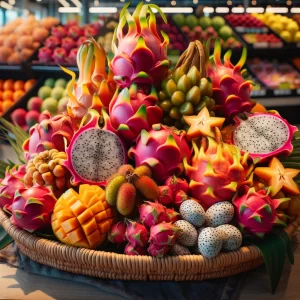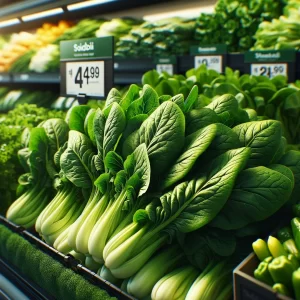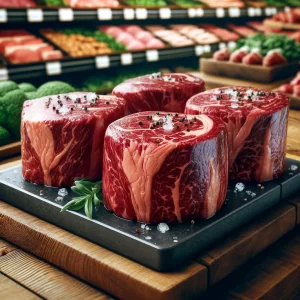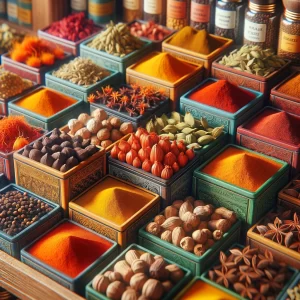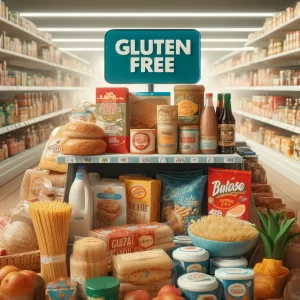In tough economic times, making smarter grocery choices becomes crucial, especially if you’re on a tight budget. This article explores 10 grocery choices you should stop making to better manage your finances. By avoiding these common pitfalls, you can save money and make each dollar stretch further.
1. Pre-cut Fruits and Vegetables
Pre-cut fruits and vegetables are undoubtedly convenient, but they tend to be significantly more expensive than their whole counterparts. You can save money by purchasing whole fruits and vegetables and cutting and preparing them yourself. To keep them fresh for longer, store them in reusable containers. This simple change can significantly reduce your grocery bill. Always compare the per-unit price to ensure that you are getting the best deal.
2. Brand Name Products
Often, brand-name products carry a higher price for the same quality you can find in generic brands. Many store brands are manufactured in the same facilities as their name-brand counterparts. Experiment with generic items to see which ones suit your taste and needs. This simple grocery choice you should stop making can cut your grocery bill substantially.
3. Bottled Water
Buying bottled water is not only more expensive than tap water, but it also adds to plastic waste. If you’re concerned about water quality, invest in a water filter. This upfront cost will pay off quickly, as tap water costs a fraction of bottled water. Make this shift and watch your savings accumulate!
4. Snack Packs
Individual snack packs are convenient but costly. Buying in bulk and portioning snacks into smaller containers at home saves money. This also allows you to control portion sizes and reduce waste. It’s a grocery choice you should stop making if budgeting is a priority.
5. Prepared Meals
While ready-to-eat meals save time, they’re more expensive than cooking from scratch. Cooking your meals can be cost-effective and healthier. It also results in lots of leftovers. Invest time on weekends to prepare meals for the week. This habit not only cuts costs but also improves your cooking skills.
6. Out-of-Season Produce
Out-of-season produce is typically more expensive due to transportation costs. Opt for seasonal fruits and vegetables instead. They are cheaper and fresher.
7. Organic Products
While organic products are great for avoiding pesticides, they can be costly. If budget is a concern, prioritize organic purchases using the “Dirty Dozen” list which highlights produce with the highest pesticide levels. This strategic approach can balance health and budget.
8. Expensive Cuts of Meat
Opt for less expensive cuts of meat and use cooking methods like slow cooking to make them tender and flavorful. This is one grocery choice you should stop making to manage your grocery budget better. Explore plant-based proteins like beans and lentils as affordable and healthy alternatives.
9. Exotic Spices and Ingredients
Exotic spices and specialty ingredients can quickly add up. Stick to basic spices and find recipes that use common, cost-effective ingredients. This not only simplifies your shopping but also keeps costs down.
10. High-Cost Gluten-Free Products
If you’re not medically required to avoid gluten, skip the high-cost gluten-free products. Many of these items are priced significantly higher than their gluten-containing equivalents. Opt for naturally gluten-free grains like rice or quinoa to save more.
Make A Change
Ready to change how you shop? Begin by eliminating these 10 grocery choices you should stop making. Plan your shopping list with these tips in mind and notice the difference in your monthly expenses. Start saving today and make the most out of every grocery trip!
Read More



